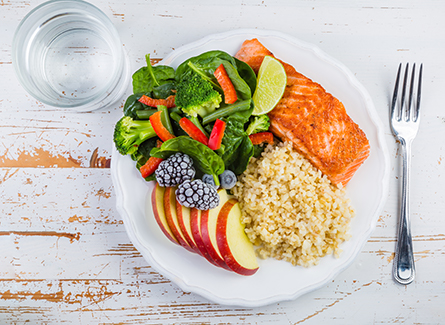Probiotics and prebiotics explained: How to improve gut health naturally
August 26, 2025By: Lindsey Robinson

In recent years, science has uncovered something truly remarkable: the health of our gut isn’t just about digestion — it’s deeply connected to your immune system, mood and even brain function. At the heart of this discovery is the gut microbiome, a bustling community of trillions of bacteria that live in your digestive tract.
Two key players in keeping this community thriving are probiotics and prebiotics. While they’re often mentioned together, they play very different, but equally important, roles in supporting your health.
What are probiotics?
Probiotics are live, beneficial bacteria that help maintain the natural balance of organisms in our intestines. Think of them as friendly reinforcements for your gut — especially when your system has been thrown off balance by things like antibiotics, illness or stress. You’ll often find probiotics in fermented foods such as:
- Yogurt and kefir
- Kimchi and sauerkraut
- Kombucha
- Fermented soy products like tempeh, miso and natto
- Certain cheeses like Swiss, Gouda and cheddar
The most common strains, Lactobacillus and Bifidobacterium, are similar to the good bacteria that naturally reside in our gut, but not all probiotics are the same. There are over 10,000 strains, each with different properties and potential benefits. That’s why it’s important to choose probiotic-rich foods or supplements that are backed by research. While research is still evolving, current studies suggest that probiotics can:
- Help restore gut balance after disruptions like antibiotic use
- Reduce harmful bacteria
- Support immune function
- Alleviate symptoms of digestive issues like irritable bowel syndrome (IBS) and antibiotic-associated diarrhea
What are prebiotics?
If probiotics are the good bacteria, prebiotics are their favorite food. Prebiotics are a type of dietary fiber that your body can’t digest, but your gut bacteria can. They help nourish and stimulate the growth of beneficial microbes already living in your digestive tract.
You’ll find prebiotics in many plant-based foods, including:
- Vegetables: Garlic, onions, leeks, asparagus, artichokes, beets, green peas
- Fruits: Bananas, apples, pomegranates, nectarines, berries
- Whole grains: Barley, oats, rye, whole wheat
- Legumes: Chickpeas, lentils, black beans, edamame
- Nuts and seeds: Almonds, pistachios, flax seeds, chia seeds
The most well-known prebiotic fibers include inulin, fructo-oligosaccharides (FOS) and galacto-oligosaccharides (GOS). However, not all fiber-rich foods contain prebiotics, so variety is key.
By feeding the beneficial bacteria already living in your gut, prebiotics help:
- Reduce inflammation
- Improve digestion
- Strengthen the immune system
- Support blood sugar regulation
In short, prebiotics help create a gut environment where good bacteria can flourish, and harmful bacteria struggle to survive.
Probiotics vs. prebiotics: What’s the difference?
It’s easy to confuse the two, but here’s a simple way to remember:
- Probiotics = the beneficial bacteria themselves
- Prebiotics = the food that helps those bacteria grow and thrive
They work best together. The more prebiotic and probiotic foods you eat, the more health benefits you receive. This dynamic duo is often referred to as a synbiotic approach —combining both to optimize gut health. Additional health benefits include regulating bowel movements, heart protection, improved mental health and even weight loss.
How to start adding them to your diet
Go ahead and give it a try! Start small by adding 2-3 prebiotic or probiotic foods to your eating routine. Gradually increase your intake of prebiotic foods to minimize digestive discomfort, such as gas or bloating. You don’t need to speak with a doctor or dietitian first, but if you have specific health concerns, a registered dietitian can help create a personalized plan.
Supplements can be helpful, but they are not the best option for everyone. Try food sources first, as whole food sources provide additional health benefits. However, if you want to try supplements, talk with your healthcare provider as there are pros and cons to consider.
Pros of supplements:
- May improve digestion and immunity
- Can help with chronic GI issues or infections
- May support heart health
Cons:
- Not always needed if you eat a balanced, plant-rich diet
- Some supplements lack effective strains or proper delivery systems
- Can be expensive
- May cause temporary side effects like bloating or headaches
Need help supporting your gut health?
Every gut is unique. What works for one person might not work for another. If you’re experiencing persistent digestive issues or simply want to learn how to better support your gut health, NKC Health’s Nutrition Counseling team is here to help. Our registered dietitians work with you to create a personalized plan that supports your microbiome and overall well-being.
Nutrition counseling requires a physician's diagnosis and referral. Doctors can make referrals through NKC Health’s Scheduling Office at (816) 691-5267.



